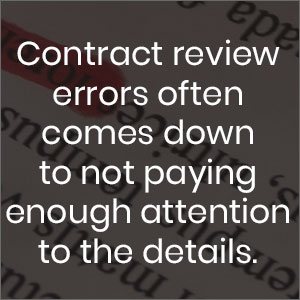Anytime two organizations want to work together, contracts are drafted. Contracts set out the agreement, in detail. They establish the terms of the agreement, responsibilities, and obligations, establish boundaries, limit liabilities, and payment conditions. Often, they go into considerable detail stipulating penalties, timing conditions, business guidelines, failure conditions, and dispute resolutions.
Contracts are corporate legal documents and the lifeblood of any substantive business. Two parties simply cannot work together on a business without a proper contract. As such, the contracting process is important, as is organizing contracts within any company. From the contract request, drafting terms and conditions, the approval process, and negotiated approval, it highlights the importance of having the right contract management processes in place.
Managing contracts is not easy. Contracts get long, cycle times can be lengthy and contract data can be overwhelming. All of this points to the importance of reviews. As such, you will want to avoid contract review process errors in your company. Here are five common ones to identify and correct.
WHAT ARE CONTRACT PROCESS REVIEW ERRORS TO AVOID?
1. FAILING TO INVEST THE RIGHT AMOUNT OF TIME
Creating a new strategy on how to review your contracts takes time. Laying out the right process for a sound contract review method will take time and effort as well. Don’t think you can skimp here. In fact, it’s one of the most important places to spend plenty of time getting it right. Contract review errors often comes down to not paying enough attention to the details.
Another strategy is to leverage your internal teams. Make sure you reach out to the various groups that touch the contracting process to ensure you get the right details into the review process. You certainly do not want a process that is so cumbersome that it stifles the company. You need a system that works and provides timely reviews.
Of the contract review process errors, these are the most important. When creating your plan be sure to outline:
- Staffing levels you will need
- Outsourcing to law firms or using in-house general counsel
- Overall workflow
- How to train the various teams
- Communication to the rest of the company
- Control methods
- Final approvals, contract consistency (compliance standards, standard clauses…), and monitoring overall contract quality levels
2. MAINTAINING AN INEFFECTIVE PROCESS
Maybe you already have a method in place. This is great news, you are ahead of most of your colleagues. However, take a closer look. One of the biggest contract review process errors is to presume that the methods you have are good enough. You may feel the pressure to follow your old methods because “we have always done it this way.” If that is the reason then you DEFINITELY need to change it!
Setting out an effective process engages the right teams to understand the implications of the terms and conditions. It deepens the understanding of the contract including the impact (positive and negative). As part of this, don’t forget the revision methods. When issues arise, there has to be a way to capture the concern and suggest updates.
Today, contract review process errors often come down to not paying enough attention to the details. It is where contract management software helps many companies. Contract Lifecycle Management (CLM) systems powered with AI (Artificial Intelligence), lets the system do a first pass to identify inconsistencies, out-of-bounds clauses, risk, penalties, and other red flags. Consider a CLM solution as an option when updating your own process.
3. NOT PLANNING YOUR CONTRACT REVIEW
Ok. Failing to plan your contract review is closely associated with using an ineffective process (guideline 2 above). But, it is important enough to highlight.
Pull together a checklist as a mandatory part of the contract appraisal. Checklists are used by mechanics, pilots, and NASA engineers so they should be good enough for your review process too.
Don’t be shy about including the CLM as a checking stage. By using contract lifecycle management, mistakes like omitting key or standard clauses become a thing of the past.
Naturally, part of the planning cycle includes training the reviewers. They need to understand the new processes or procedural changes. Make sure they understand why the changes were needed. Also, make sure they are aware of and using the checklists developed.
By planning this contract examination, your teams will better understand the agreement before signing. This is a critically important positive effect!
4. NEGLECTING QUALITY CONTROL
Check for errors. Look for omissions, inconsistencies, excessive liabilities, penalties, breaches in your own corporate policies, and other such aspects. Again, a CLM solution with embedded, pre-trained AI technology can help tremendously. Not only does it speed up your review process, but it identifies outliers, problems, and highlights risks.
In fact, sound practice is to embed parts of the quality control process directly into your checklist.
5. MISSING A SYSTEM OF RECORD
When companies have tens of thousands of contracts active at any given time, it can become a nightmare to manage them all. Now, imagine that these contracts are resident throughout the organization. Marketing will have events and advertising contracts. IT may have a database with all of it’s SaaS agreements. Then, procurement hosts a share point site with the copier, facilities, and supplier agreements. Next is sales with contracts stored in Salesforce or Dynamics. You cannot review contracts you cannot find.
By no means is this a picture of control, a proper methodology, or a sound contract management practice. Eliminating the distributed contracts problem is a big part of halting one of the contract review process errors. You cannot review contracts that you cannot find!
A robust contract management system like ContractPodAi takes away this problem. Part of the implementation is about finding all contracts across your organization (even the paper copies) and putting them into a central digital repository. That way, your review team has access to all corporate contracts to maintain control and consistency.
MAKING CONTRACT REVIEW PROCESS ERRORS A THING OF THE PAST
Certainly, each contract review project presents its own challenges. But, knowing of and avoiding common pitfalls is a best practice in itself. Avoid these errors and take on a few of the guidelines suggested. Your contract review process errors will become a distant memory.




